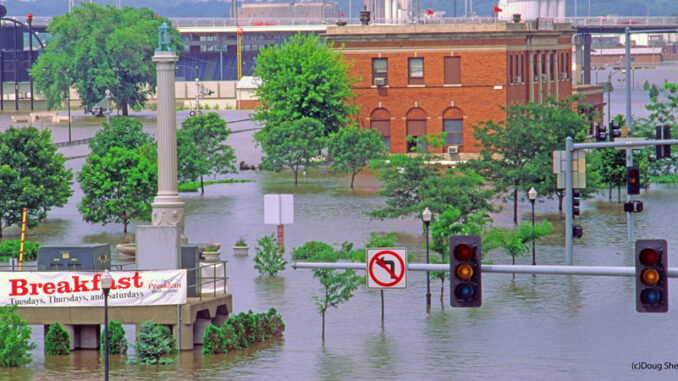
Uhlenbeck Wins World’s Greatest Math Prize
Known as the “Nobel Prize of Mathematics,” the Abel Prize is the world’s most prestigious award in this field. It was founded in 2003 and is given each year by the Norwegian Academy of Science and Letters to an outstanding mathematician. And this year, for the first time ever, the prize is going to a woman.

Karen Uhlenbeck, this year’s winner of the Abel Prize, is a mathematician and professor at the University of Texas. She is 76 and best known for her work with partial differential equations. But she has also conducted extensive research in physics, geometry, and quantum theory. One of her most famous contributions involves the simplest of things: a soap bubble. Uhlenbeck’s work shows how the thin, curved surface of the soap bubble is an example of the way that surfaces form themselves into shapes that take up the least amount of area. Uhlenbeck has a long history of substantial awards and achievements, including a MacArthur Fellowship (otherwise known as the MacArthur “genius grant”) in 1983; the National Medal of Science in 2000; and the Steele Prize from the American Mathematical Society in 2007. In 1986, she also became the first woman to be elected to the National Academy of Sciences.
However, Uhlenbeck is not “just” a mathematician. Throughout her career, she has also been committed to encouraging other women to study mathematics, and outspoken about the challenges women face in the math and science fields. To that end, she co-founded the Women and Mathematics program at Princeton University in 1993.
Uhlenbeck will officially receive the Abel Prize from Norway’s King Harald V at a ceremony in Oslo on May 21. The award includes a cash prize of six million Norwegian kroner.
Dig Deeper: Put your own math skills to the test! If one Norwegian kroner is equal to 0.12 U.S. dollars, how much is Uhlenbeck’s prize worth here in the United States?
Deadly Cyclone Ravages Parts of Africa
While the midwestern United States faces record flooding, another weather crisis has killed hundreds of people in southeastern Africa. Cyclone Idai–one of the worst Southern Hemisphere tropical cyclones on record–has claimed the lives of at least 750 people. Some experts fear the death toll could eventually reach into the thousands. The storm reached maximum sustained winds of up to 120 mph and nearly leveled entire towns. Survivors face widespread homelessness, as well as a lack of electricity and/or running water. Hospitals have been damaged, and roads washed away. Emergency relief efforts are further complicated by the fact that the devastating tropical storm has filled streets and downtown areas with sand.
Though the storm made landfall on March 4 and dissipated on March 21, its effects will be felt for a long time. In Mozambique, for example, it is estimated that at least 400,000 people lost their homes to Idai. Public health officials are concerned about the spread of diseases such as dysentery and cholera from the lack of sanitary conditions. Also, because a high portion of people in this area of the world are subsistence farmers, there will likely be widespread dangerous food shortages. The United Nations estimates that at least 330 square miles of crops were damaged just before the harvest, and untold numbers of livestock lost. According to the UN up to 2.6 million people have been directly affected by the storm, and countless more impacted indirectly.
Dig Deeper Four African nations were directly affected by Idai. Use internet resources to list the countries and locate them on a map.
Deadly Flooding in the Midwest
As winter snow melts and spring rain begins, the Midwest is suffering severe flooding that in some places has turned deadly. Three people have died as a result, and the president has declared a national emergency in the state of Nebraska. Hundreds of people have been displaced when their homes flooded, filling with as much as six to seven feet of water throughout the eastern part of the state. Though the flooding is starting to recede somewhat, the Army Corps of Engineers has stated that the majority of federal levee systems along the Missouri River are in danger of failing.
While spring flooding is common, particularly in the Midwest, what makes this year so exceptional? Weather experts say that it’s the result of a “bomb cyclone”–an intense winter storm of wind and snow, leading to blizzard-like conditions–that hit the area in mid-March. Bomb cyclones are characterized by a rapid fall in barometric pressure (at least 24 millibars over 24 hours). Violent weather stretched as far east as the Great Lakes, with tornadoes, hail, and high winds in Kentucky and Indiana.
Unfortunately, the situation is only going to get worse. In fact, the National Oceanic and Atmospheric Administration has predicted that more than 200 million people are at risk of facing floods in their communities. Major or moderate flooding could affect as many as 25 out of the 48 continental states, while two-thirds of the country will see an elevated flood risk as a result of higher than usual amounts of precipitation, especially in the central and southern U.S. There is also above-normal snowpack in much of the West, which will not only worsen the flooding situation, but bring the possibility of avalanches as well.
What Do You Think? Was your community affected by the recent bomb cyclone event? Based on the article, what possible weather difficulties could your community face this spring?
Democratic Candidates Embrace Bold Views
Traditionally, presidential candidates have always tried to remain moderate in their political views. They do this because they want to secure the support of their own party, but also potentially woo voters from the other side of the political aisle. However, 2020 is no ordinary election year, and Democratic candidates are becoming increasingly comfortable with supporting bold policy changes that might have been considered taboo–or at least, very politically risky–just an election cycle or two ago. For example, many candidates are now supporting a “Medicaid for all” national healthcare system, doing away with private health insurance entirely. Others stand behind the idea of creating economic reforms that would provide descendants of enslaved persons with some kind of financial reparations. And Senator Elizabeth Warren (Massachusetts) recently made headlines when she suggested eliminating the Electoral College altogether, and electing presidents based solely on who wins the popular vote.
Taking these kinds of stands is politically risky. On the one hand, boldness goes a long way toward exciting voters to donate or to sign up to volunteer for a candidate’s campaign. On the other, however, candidates whose position is viewed as too radical risk alienating more moderate voters.
So far, is this strategy working? Possibly. Though the presidential election won’t take place until November 2020, Democratic hopefuls are already bringing in large amounts of money from donors and seeing huge crowds at their rallies, which may signal that many Americans are ready for drastic change.
